International environmental and human rights campaigners condemn the 4th Latin American Palm Oil Conference to be held by the Round Table on Sustainable Palm Oil (RSPO) in Honduras on 6th-8th August. The site of deadly conflicts over land rights with alarming impacts to ecosystems and communities, sustainably produced palm oil in this Central American country is impossible. The World Wildlife Fund among other sponsors, are charged with greenwashing and condoning human rights abuses.
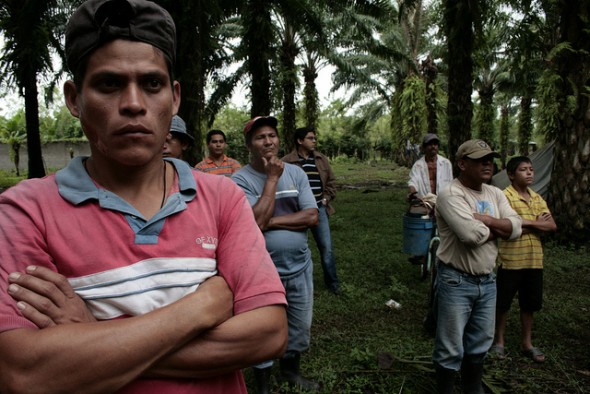

Expanding Palm Oil Empires In The Name Of “Green Energy” And “Sustainable Development”
Press Release By: Rights Action, Rainforest Rescue, Biofuelwatch and Food First
From 6th-8th August, the Roundtable on Sustainable Palm Oil (RSPO) is holding its 4th Latin American Conference on so-called sustainable palm oil in Honduras [1]. (Conference website: http://rspo2013.com/). Environmental and social campaigners have been shocked to learn that one event sponsor is the palm oil company Grupo Dinant, owned and controlled by Miguel Facussé, the largest landowner in Honduras. They are calling on World Wildlife Fund WWF and three other organisations to withdraw from and denounce the conference being held in Honduras due to the Dinant’s sponsorship of the event and the serious human rights implications [2].
Mr. Facussé was a key supporter and beneficiary of the June 2009 military coup in Honduras [3], has been associated with narco-trafficking [4], and, along with other large oil palm growers, has been linked to the targeted killing of more than 88 members and supporters of peasant organisations since June 2009 in the Bajo Aguan Valley [5], one of the main palm oil producing regions in Honduras. A recent profile of Facussé in the Los Angeles Times describes the 89-year-old businessman as “a symbol of the old style of patriarchal power” that has “ruthlessly developed the country over the decades from a hot and dusty backwater to an international producer of bananas, cheap clothing and, more recently, biofuels.”
Annie Bird from Rights Action states: “By holding its conference in Honduras and by allowing Dinant Corporation to sponsor the event and hold a stall, the RSPO is turning a blind eye to systemic and severe human rights abuses, including forced evictions of entire communities and over 88 killings for which palm oil companies, especially Dinant, are responsible. The RSPO Conference serves to reinforce the impunity with which the large-scale palm producers operate.”
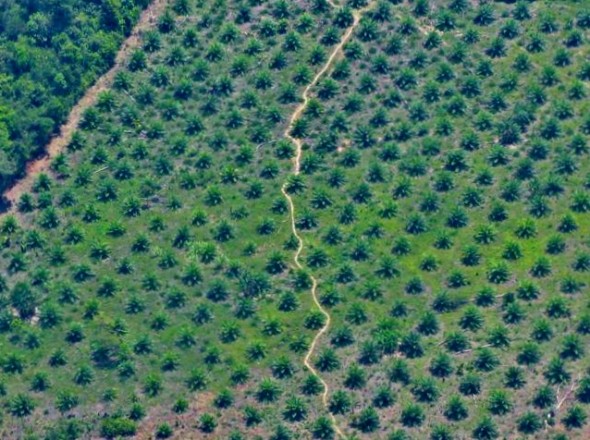

RSPO is overwhelmingly dominated by the interests of large corporations like Nestlé, Rabobank and Unilever-all linked to cases of “land grabbing” in Asia, Latin America and Africa.” [6] The negative consequences of monoculture oil palm plantations are tangible in Indonesia, Malaysia, Papua-New Guinea, Cameroon, Uganda, Côte d’Ivoire, Cambodia, Philippines and Thailand and also in Colombia, Ecuador, Peru, Brazil, Guatemala, Mexico, Nicaragua and Costa Rica.
Generalized impacts include: Deforestation of tropical forests, contributor to increasing atmospheric carbon dioxide levels and climate change, threatens land and subsistence of 60 million indigenous people, promotes illegal appropriation of land, land tenure conflicts and violation of human rights, increases the use of agrochemicals, and violates the right to food and food sovereignty.
According to Tanya Kerssen, Research Coordinator for Food First, “The case of Dinant is emblematic of how large, elite-controlled companies use palm oil to expand their control over land and other resources. The RSPO is merely window dressing for this continued corporate expansion, which-whether classed as ‘sustainable’ or not-necessarily means the replacement of forests, biodiversity and food production with a large-scale monoculture crop for biofuel and unhealthy edible oils.” [7]
Guadalupe Rodriguez from Rainforest Rescue adds: “WWF and the three other organisations involved in this RSPO conference must pull out of and denounce this process. They must not, however indirectly, associate themselves with palm oil businessmen involved in repressing, evicting and killing peasants in Honduras’s Aguan Valley.”
The European Commission considers all biofuels from RSPO-certified palm oil to be sustainable and thus eligible for government support [8]. This is despite growing evidence by a large number of organisations, which shows that the RSPO has not been enforcing its own standards on its member companies and cannot guarantee environmental or social sustainability of palm oil [9].
Almuth Ernsting from Biofuelwatch states: “The RSPO Secretariat’s decision to hold a conference in Honduras and allow Dinant Corporation to contribute sponsorship and hold a stall further undermines any pretense that the RSPO’s aim is to make palm oil sustainable. Far from addressing any of the most serious impacts of palm oil production, the RSPO continues to serve as an instrument of greenwashing for the industry”.
CONTACTS
Almuth Ernsting ++44-131-6232600 (UK), Tanya Kerssen : ++ 510 654-4400, ext. 235 (USA)
WHAT TO DO
Please write the World Wildlife Fund and other involved NGOs and ask them to withdraw from participating and to properly investigate the situation of targeted killings and illegal, violent evictions in the “Aguan” region of Honduras, to make way for African palm production:
- World Wildlife Fund USA, Washington DC, Roberto Troya, Latin America and Caribbean VP/Regional Director, roberto.troya@wwfus.org
- Solidaridad Network, (http://solidaridadnetwork.org/, “Making Markets Work For The Poor”), Michaelyn Bachhuber Baur, Directora Regional Centroamérica, michaelyn.baur@solidaridadnetwork.org
- SNV Netherlands Development Organisation, Reintje van Haeringen, rvanhaeringen@snvworld.org, Damien van der Heyden, dvanderheyden@snvworld.org, http://www.snvworld.org/en/regions/latin-america
- ProForest (a Tree Work & Forestry Services company), Oxford, Oxfordshire, South East, England, Ruth Nussbaum, Dr.Ruth.Nussbaum@proforest.net, americalatina@proforest.net, http://www.proforest.net/
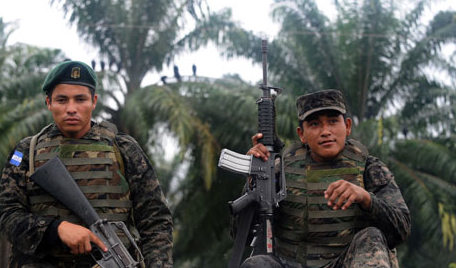

NOTES
[1] The Roundtable on Sustainable Palm Oil is a stakeholder forum which provides voluntary certification for palm oil. The great majority of RSPO members represent industry interests.
[2] See http://rightsaction.org/action-content/open-letter-world-wildlife-fund-solidaridad-network-snv-netherlands-development for an Open Letter to WWF, Solidaridad, SNV Netherlands Development Organisation and Forest Ethics on this issue.
[3] In June 2009, the democratically elected Honduran government of Manuel Zelaya was overthrown by a military coup. Manuel Zelaya’s government had begun listening to and acting on the demands of peasant organisations for land reform, including in the Aguan Valley region. The land reform process was ended by the military rulers after the coup. Since then, Dinant Corporation and their armed security forces have been collaborating with military forces and police forces in repressing local communities who have been trying to reclaim land controlled by Dinant. See for example: http://www.enca.org.uk/documents/ENCA56_Sep_2012.pdf .
[4] Published Wikileaks Cables revealed that the US embassy in Honduras has had evidence linking Miguel Facusse to drug trafficking since at least 2004 and that several airplanes with drugs have landed on his private property. See http://www.thenation.com/article/164120/wikileaks-honduras-us-linked-brutal-businessman#
[5] For a report by Rights Action about killings and other human rights abuses in the Aguan Valley, see http://rightsaction.org/sites/default/files/Rpt_130220_Aguan_Final.pdf .
[6] See, for example: “The bloody products of the house of Unilever” Rainforest Rescue, 2011. https://www.rainforest-rescue.org/mailalert/747/the-bloody-products-from-the-house-of-unilever
[7] For more on the link between palm oil expansion and corporate control, see Kerssen, Tanya. Grabbing Power: The New Struggles for Land, Food and Democracy in Northern Honduras. Food First Books, 2013.
[8] See http://www.rspo.org/news_details.php?nid=137 [9] Previously, over 250 organisations condemned the RSPO for ‘greenwashing’ of palm oil: http://www.biofuelwatch.org.uk/2008/rspo-declaration-english/ . More recently, the RSPO has been denounced for example by Greenpeace and Friends of the Earth; http://www.biofuelwatch.org.uk/2008/rspo-declaration-english/



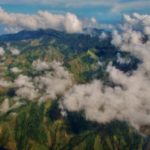
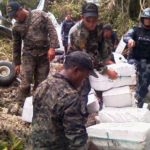
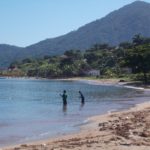

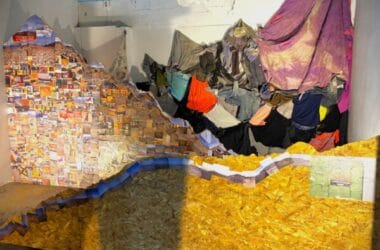
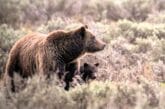
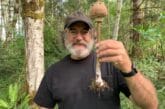



Pingback: Lost City "Discovered" in Honduran Jungle? | WilderUtopia.com
Pingback: Blessing for La Moskitia, A Culture and Land in Transition | WilderUtopia.com